(CLO) Associate Professor Dr. Ngo Tri Long said that the second real estate tax policy has been proposed many times and has been discussed many times, but there are still many opposing opinions.
Discussed over and over again
Recently, in a report sent to the Government Office on the reasons for the increase in real estate prices, the Ministry of Construction said it will study and propose a tax policy for cases of owning and using many houses and lands to limit speculation and buying and selling in a short period of time to make a profit.
Therefore, the Ministry of Construction proposed to tax people who own many houses and land to reduce housing prices. Agreeing with this view, Deputy Minister of Finance Nguyen Duc Chi said that "this is a proposal worth accepting and studying".
Regarding this issue, Associate Professor Dr. Ngo Tri Long, an economic expert, said: This is not the first time that a second real estate tax solution has been proposed to reduce housing prices.
In fact, the proposal to tax second and subsequent apartments has been studied for decades.
In particular, at the end of 2009, the Housing and Land Tax Law Project consisting of 15 articles was submitted by the Ministry of Finance for comments and was expected to be approved at the meeting in May 2010. However, for various reasons, after 15 years, this tax is still just an idea.
Recently, at the end of 2022, the People's Committee of Ho Chi Minh City also submitted a document to the Government, proposing to decide on additional tax policies for land use rights and property ownership rights on land of the second or more real estate properties of the people.
Then in August 2023, Ho Chi Minh City voters continued to propose taxing second homes and imposing higher taxes on vacant properties that do not generate land value.
Recently, the Vietnam Real Estate Brokers Association also proposed a real estate tax policy applicable to two groups, including buyers of second homes or more and owners who abandon projects. The tax rate will gradually increase for transactions where the seller has a short ownership period.
Thus, it can be seen that the second real estate tax policy has been proposed many times and has been discussed many times, but there are still many opposing opinions.
Associate Professor Dr. Ngo Tri Long said that in 2023, the proposal to impose high taxes on second home owners was included in the draft Resolution to replace Resolution 54/2017 of the National Assembly on pilot mechanisms and policies to create development momentum for Ho Chi Minh City, but was later removed because discussions showed that there were still many shortcomings.
“ This regulation may not ensure fairness in many cases, such as people who only have one house, large land area or high value are not taxed, while people who have two houses or more land areas with small area or value are taxed, ” said Associate Professor Dr. Ngo Tri Long.
This mechanism is also not suitable for practical conditions because real estate transactions are mainly carried out on paper documents and the application of information technology is still limited, so many organizations and individuals will find ways to avoid taxes by letting others stand in their names.
Mr. Long emphasized that everyone affirmed that the research on real estate tax policy is necessary, contributing to restructuring the state budget in a safe direction, encouraging the reasonable use of real estate, in accordance with international practices. However, this needs a roadmap to avoid causing a "shock" to the market.
"The Ministry of Construction's proposal to tax second homes is one of the measures that needs to be carefully considered," said Mr. Long.
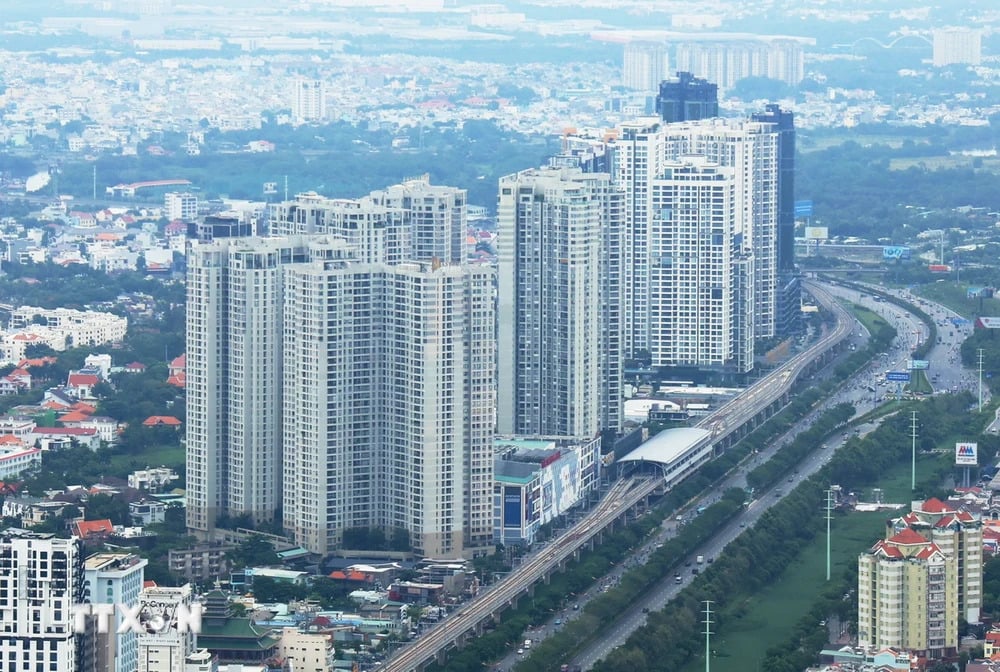
| Some opinions say that Vietnam can learn from Singapore in taxing second real estate. Regarding this issue, Associate Professor Dr. Ngo Tri Long said that Vietnam and Singapore are two completely different cases, applying the regulations of one country to another is not feasible. "China is a clear lesson in the overly rigid use of tax tools for those who own second homes or more to control rising house prices but it has the opposite effect. The use of tax measures on the real estate market is extremely sensitive so we must evaluate all the impacts," Mr. Long said. Professor Dr. Dang Hung Vo, former Deputy Minister of Natural Resources and Environment, shares the same opinion: For a long time, many people have wanted to learn from Singapore's tax method, which is that those who buy second homes are taxed at a higher rate. But the characteristics of Vietnam are different from Singapore, in the case of the first house being very valuable, but the second house being very small, then only the second house may be taxed but the first house may be ignored. Some countries collect a tax of 1 - 1.5% of the value for all cases of house and land ownership. But in Vietnam, people's income is still low, if this level is collected, people cannot bear it. Therefore, it is necessary to study a tax suitable for Vietnam to be able to collect tax based on the value of the house, land or area of ownership, ensuring the goal of both preventing real estate speculation and ensuring social security. |
Should we tax second property?
There are still mixed views on the second property tax in the current context.
There is consensus on the need to tax second home owners, with some main reasons being that many countries around the world have already applied it, or that the tax can encourage more efficient use of assets, increasing revenue for the state budget.
It is also argued that owning many properties due to speculation can increase housing prices, making it difficult for people looking for housing, so "taxing" can reduce speculative demand and help stabilize the market, encouraging sustainable development.
However, Associate Professor Dr. Ngo Tri Long said that in the current context, taxing second home owners will be ineffective and unfeasible.
The main causes of the current real estate market's consequences are lack of supply, legal and institutional problems that have not been resolved. Many localities are afraid of making mistakes and being held responsible, leading to project delays. Along with that, the situation of brokers and speculators inflating prices in some areas requires the immediate intervention of management agencies and authorities to check, remind, and avoid virtual prices.
“ Therefore, to manage the market, we must synchronize many solutions and policies, and study where the price increases are “hot” and intervene. Taxation is not the core solution to solve current problems. If we apply a tax policy, it will cause consequences for the market,” said Mr. Long.
According to this expert, real estate tax can push up the price of houses and land. Because the tax cost will be added to the product price, the final buyer will have to bear this cost.
In addition, Mr. Long pointed out another reality, which is that asking relatives, acquaintances, and family members to own real estate in Vietnam is very easy and it has been happening openly up to now.
Anyone can ask their siblings, parents, or children to help them own dozens of properties. To avoid asking others to own them, it is necessary to determine the financial origin of the homeowners. Only by proving the public origin of the assets can we avoid the practice of transferring names or “owning” real estate.
Currently, we still have difficulty in determining whether a second home is for investment or business purposes, or for children or as a gift. When applying taxes, there are many purposes that need to be classified and we must have a nationwide management system that connects localities to control this issue.
Along with that, it is necessary to combine with other technical measures such as mandatory banking transactions, declaration requirements, etc. to control the ownership of second homes.
“The Ministry of Finance affirmed that the goal of limiting speculation and stabilizing the real estate market will be difficult to achieve if only relying on taxation. Instead, the policy system needs to have synchronization between regulations on land and planning,” Associate Professor Dr. Ngo Tri Long emphasized.
Agreeing with this view, Dr. Dinh The Hien, Director of the Institute of Informatics and Applied Economics, assessed that the proposal to impose a second real estate tax at the present time is completely inappropriate.
Because not only does it make the market lose confidence, it can also increase housing prices, making people lose access to housing. More dangerous is the possibility of a backlash when people fall into a spiral of tightening spending, causing an economic recession.
“Real estate is not only a place to live but also plays an input role in economic activities. For example, for producers and traders, in addition to the first real estate such as factories, shops, etc., they must own or rent a second real estate to live in. Imposing tax on the second real estate in this case causes the price of the goods and services they sell to be added with an annual tax rate, and in the end, the one who bears the burden is the consumer,” said Dr. Dinh The Hien.
Viet Vu
Source: https://www.congluan.vn/danh-thue-bat-dong-san-thu-2-gay-tranh-cai-ban-di-ban-lai-nhieu-lan-nhung-van-tac-post322171.html





![[Photo] Binh Trieu 1 Bridge has been completed, raised by 1.1m, and will open to traffic at the end of November.](https://vphoto.vietnam.vn/thumb/1200x675/vietnam/resource/IMAGE/2025/10/2/a6549e2a3b5848a1ba76a1ded6141fae)







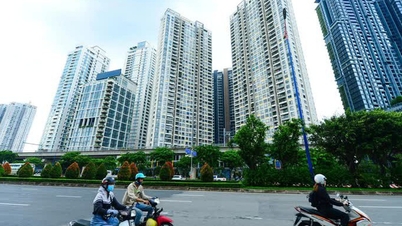

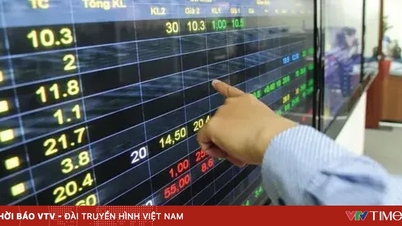


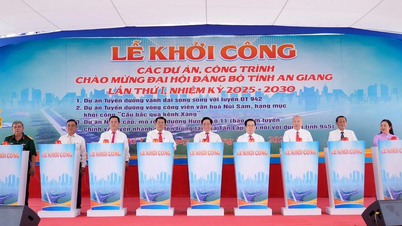

















































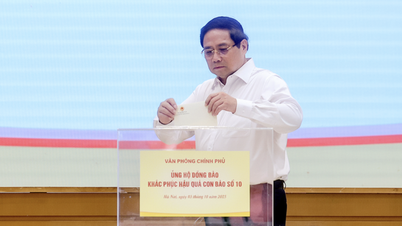





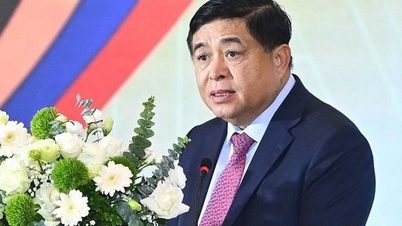



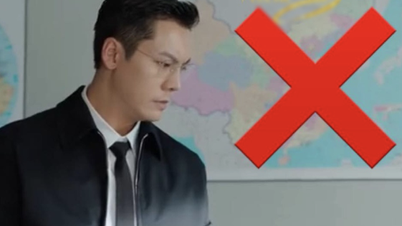
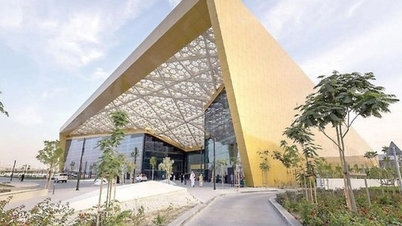
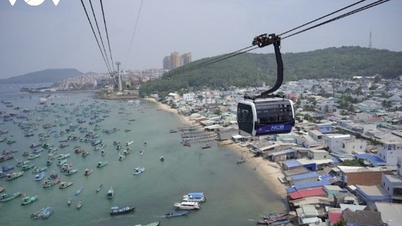


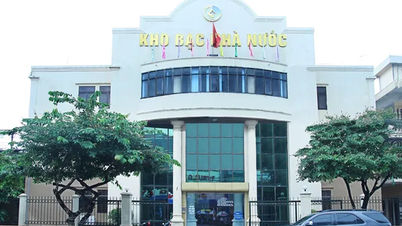



![G-DRAGON 2025 WORLD TOUR [Übermensch]](https://vphoto.vietnam.vn/thumb/402x226/vietnam/resource/IMAGE/2025/10/3/0dec353013874c2ead28385a8c4ccf55)

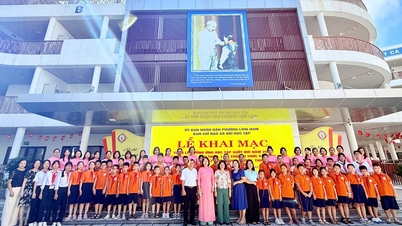













Comment (0)